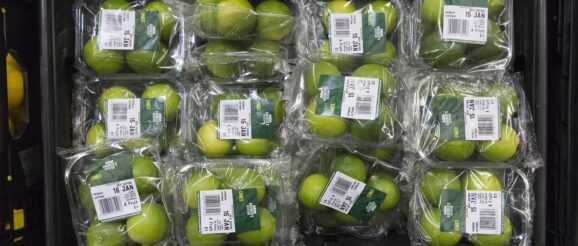Managing plastics pollution through innovation and collaboration, not bans | The Star

With the arrival of COVID-19 in Canada came not only fears for our health and safety, but of whether food shortages would occur. Fortunately, the worst-case scenarios for our food supply were never realized, but this renewed focus on our food supply chain is an opportunity to better understand the instrumental role food packaging plays in protecting the safety and integrity of our food and extending the shelf life of many products.
Currently, we’re at risk of losing access to the affordable and effective plastics packaging that ensure greater sanitation and less waste of our food. An increased public awareness of plastic waste across the world has led consumers to express concerns regarding the use of plastics and look increasingly for blanket solutions from government. As a result, Canada announced last summer that it would take action to ban single-use plastics as early as 2021, under the Canadian Environmental Protection Act.
Banning certain plastics will not help foster long-lasting solutions to manage plastic pollution, nor will it create the flexibility we need to responsibly use plastics when they are the most affordable and effective tool for safety and health.
Without effective food packaging, we are quite literally throwing money away; research indicates that, without adequate packaging, 16 to 32 per cent of the food that is currently sold in packaging will be lost or wasted. This equates to a 10 to 20 per cent loss in total available product, which is valued between $2.5 and $5 billion per year in wholesale prices.
As importantly, the resultant increase in food spoilage could result in food security issues. The use of plastic to improve supply chain efficiencies preserve and extend the shelf life of food can contribute to efforts to reduce greenhouse gases in the atmosphere.
Right now, industry leaders have an opportunity to partner with consumers and governments to develop an increasingly circular economy that better supports the effective collection and recycling of plastics. Our goal is to work together to keep plastics out of the environment while further contributing to a sustainable economy.
Canada’s produce industry knows firsthand how valuable plastics are in ensuring safety and extending the shelf life of food, but we also remain committed to reducing plastic waste. We have been active in the use of more sustainable produce packaging solutions, such as the use of lightweighting techniques to incrementally reduce the total mass of packaging.
By swapping rigid lids for flexible plastic films and decreasing the volume of plastic films overall, the produce industry has removed more than 4,500 tonnes of single-use plastics from the environment per year in the tomato and cucumber sectors alone. We’ve shifted to validating such lightweighting techniques on other products, such as kiwi, beets, lettuce and berries in the drive to achieving similar environmental benefits across the produce sector.
Such packaging innovations lead to other important environmental benefits, including improvements during product shipment. The use of lighter-weight plastic packaging increases the capacity of each container while reducing the overall shipping weight, resulting in fewer trucks on the road and reduced fuel emissions. In fact, lighter-weight plastic packaging uses two to eight times less energy than heavier packaging alternatives.
These are the kinds of innovations that members of the Canadian Produce Marketing Association (CPMA) expect. The produce growers, shippers, packers, transporters, wholesalers, food service operators and retailers whom we represent are collectively driving for more effective, affordable and sustainable plastic packaging to bring fresh fruit and vegetables from the farm to the homes of millions of Canadians each year.
These challenges represent important opportunities for improvement, and it is on all of us to take part in improving processes to reduce waste. That’s why we released a road map last year detailing steps we’re taking to achieve our vision of keeping plastics in the economy and out of the environment. This means driving plastic packaging innovation while also working to increase recycling rates and explore other sustainable packaging alternatives, like composting and packaging reuse.
While certain plastic bans may seem like attractive policies, the CPMA and our members know there are better ways to reduce plastic waste through innovative solutions and partnerships with consumers and government. We will continue to work with the Canadian Council of Ministers of the Environment to ensure that Canadians’ food can be effectively protected while all waste stays out of the environment.
